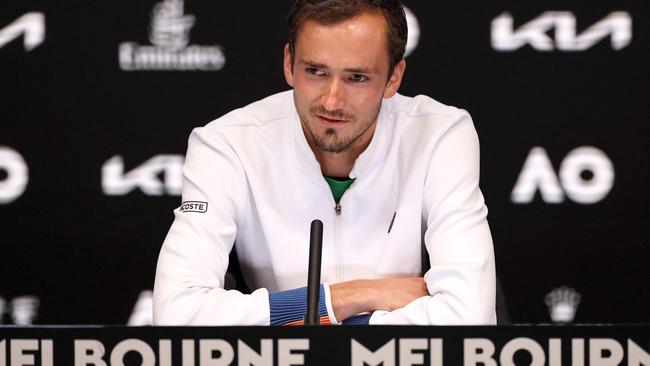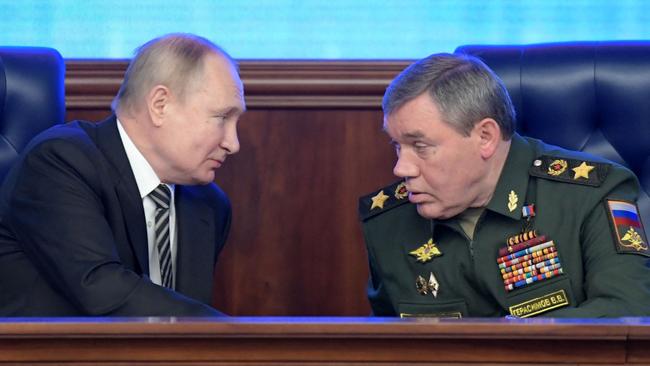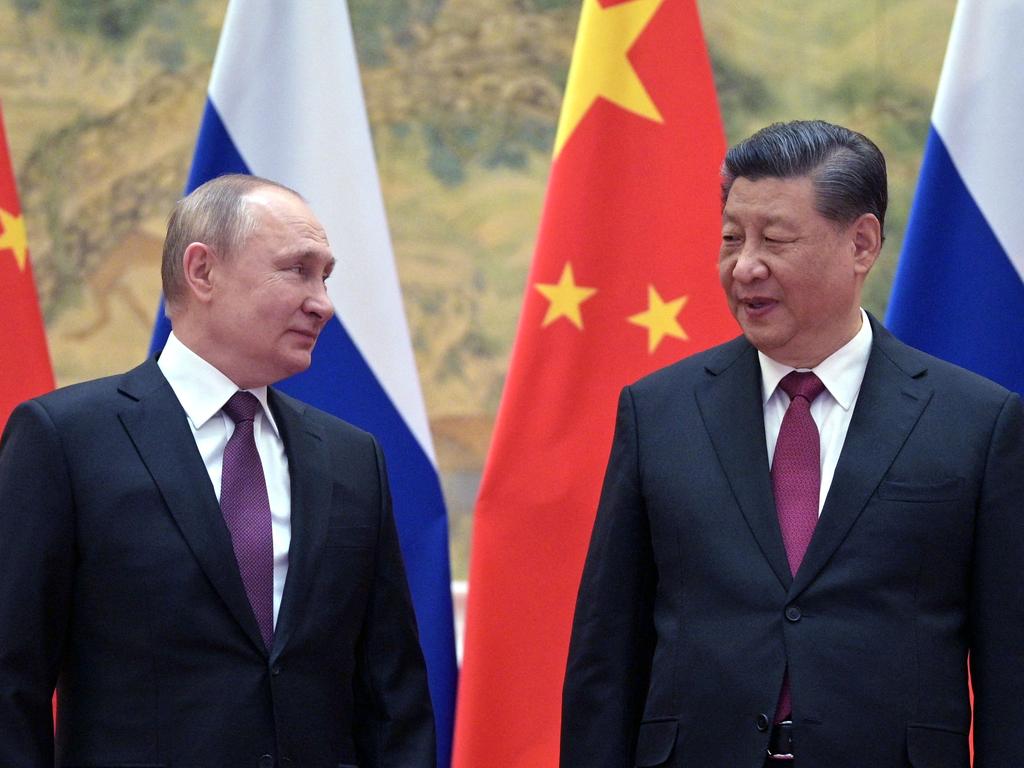Sanctions must hit Russian elite’s access to the West

The International Criminal Court has jurisdiction to put Vladimir Putin on trial and, indeed, in prison, but Russia (as one of the big five powers on the Security Council) obviously would veto any such move.
Going to war is, as German Chancellor Olaf Scholz says, unthinkable for any democracy these days, which leaves only sanctions. But they have always failed to deter Putin, whether from annexing Crimea or saving Bashar al-Assad from defeat in Syria. But sanctions come in different forms; are there any that might still work to deter a full-scale and bloody invasion of all Ukraine?
Certainly not the risible measures that had been announced by democratic allies (to which Australia signed up). There are a few small Russian banks with which we will not do business (although who would want to?) and a few oligarchs who will be denied visas for visits to the West (although they are unlikely to wish to visit) and an embargo on investing or trading with the Putin-created “republics” of Donetsk and Luhansk – nests of financial and political corruption under previous governments supported by Russia.
The most dramatic threat has been to suspend operation of a new German pipeline planned to bring Russian gas to Europe, but this venture – lucrative for Russia – merely has been suspended, not cancelled. Punishment, as is often the case with economic sanctions, will be visited on those who impose them – in this case, through higher gas prices in Europe.
The reality is that economic sanctions alone will not work to deter a powerful aggressor state. The only hope lies in moral sanctions of the kind that had some effect against apartheid and are available to Western states through Magnitsky laws, which authorise sanctions in the form of visa bans and asset freezes against human rights abusers. They would be appropriate for use against Putin’s generals and advisers although they must be made much tougher: they must stop the Russian ruling class, the nomenklatura, from educating their children in Western countries and deny them access to Western hospitals as well as banks and financial institutions.

It was Putin’s main opponent Boris Nemtsov, before he was assassinated, who provided the rationale for a Magnitsky law with his comment that the only way Britain could stop Putin from assassinating his enemies who were resident there was to stop his oligarch friends from sending their children to Eton. In other words, for the West to ostracise wealthy Russians and their families who thrive in London and other Western capitals.
But why stop at those who have personal connections with the leadership? If the purpose of sanctions is to give Putin pause and to deter further bloodshed, then a much wider targeting of the Russian people, whether resident in the West or seeking to profit from connections with it, must be contemplated. Members of this wider class should be sanctioned unless they are prepared to condemn the Russian government’s lawless aggression in Ukraine.
In every war, the “enemy alien” is targeted, often with little common sense. (Britain, absurdly, interned German Jews in case they decided to help Adolf Hitler.) Treating all Russians resident in the West as potential enemies would not be the point: but targeting them would be legitimate if they were complicit in or supportive of Russia’s invasion of Ukraine and preparedness to kill its people.
That was the basis for the responsibility fixed on German people after their wartime defeat: they had voted for Hitler, fought in his armies and turned a blind eye to his concentration camps.
Russians with residence, business, sporting or artistic connections with the West are diminished by their current political leadership and their loyalty to it is no longer acceptable if it extends to support for its aggression in Ukraine. They should be denied access to Western life and culture, and should be regarded as enemies of democracy unless they can dissociate themselves with the attack on Ukraine. Sanctions against them would not make them victims of discrimination on account of their race but on account of their allegiance to a criminal country.
The inability of Western leaders to contemplate effective sanctions on wealthy Russians became obvious in Boris Johnson’s reply to a gibe about Russian money funding the Conservative Party, most notably by paying lavishly for a game of tennis. He brushed concern away as “Russophobia”. But if the purpose of sanctions is to change Putin’s mind, the only means to do so may be to impress upon successful Russians that he is their worst enemy; that he has made them international pariahs. Denying those who support him any further connection with the West unless they are prepared to condemn their country’s invasion of Ukraine would be the only sanctions likely to have impact.
The year began with Australia deporting a tennis champion over his beliefs about vaccination. By the time of next year’s Open we should be denying entry to all Russian players unless they disavow what may by then amount to their nation’s brutal occupation of a free and friendly democracy.
Geoffrey Robertson QC is author of Bad People and How to Be Rid of Them, published by Biteback.







The state of Russia and its leader are guilty of the international crime of aggression, committed through a brutal breach of the UN charter by invading the sovereignty of Ukraine under the pretext of peacekeeping.